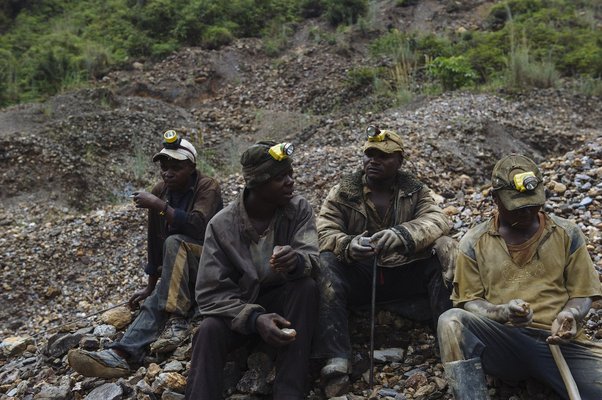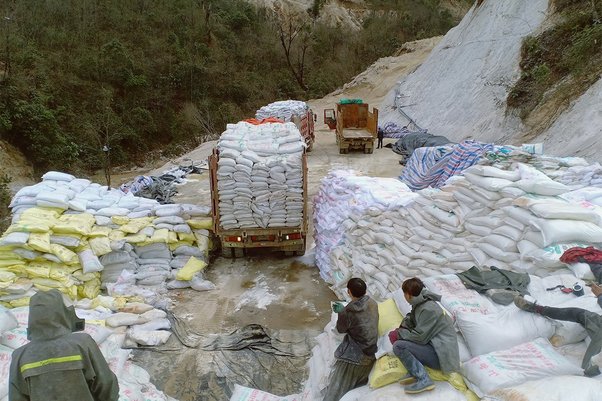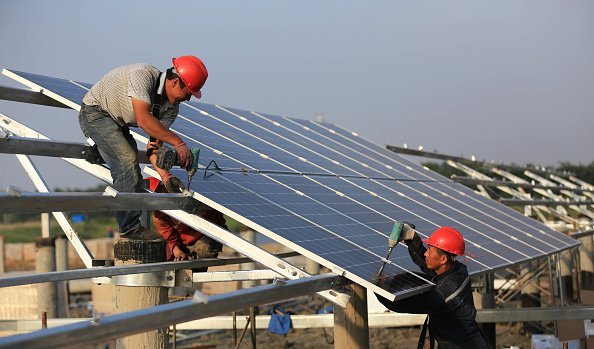Metals supply chains bring minerals and metals from producer countries to manufacturing and trading hubs across the globe, providing the materials for an immense array of final consumer products from cell phones, camera lenses to computers. These supply chains carry risk.
Human rights, corruption and environmental risks are part and parcel of the extraction, transport and trade of minerals, particularly when sourced from so-called conflict-affected and high-risk areas. With these risks comes the responsibility of companies all along the supply chain to put in place effective measures to ensure they are not contributing to, or profiting from, serious harm to individuals, society or the environment.
International guidance by the Organisation for Economic Cooperation and Development (OECD) on conducting Due Diligence for Responsible Supply Chains of Minerals from Conflict-Affected and High-Risk Areas (OECD Guidance) provides a detailed five step framework for companies to follow. Smelters and refiners, which process minerals, are identified as the control point in mineral and metal supply chains as they are well-positioned to have a significant overview of and influence over the upstream supply chain (i.e. the supply chain from the mine to the refiner or smelter, which may include artisanal, small and large-scale miners, local traders, exporters, international concentrate traders and mineral processors).
They are well-positioned to collect and make public essential information about the risks and risk mitigation activities associated with their upstream supply chains. The ability to access and scrutinise this information is of critical importance for downstream companies (companies in the supply chain from refiner/smelter to the end product, for example metal traders and exchanges, component manufacturers, product manufacturers, original equipment manufacturers, and retailers) in fulfilling their own responsible sourcing obligations.
Download the briefing: Digging for disclosure
Download ResourceOur new report sets out our analysis of publicly available supply chain due diligence information and reporting published by 75 tin, tantalum, tungsten and gold (3TG) smelters and refiners operating in mainland Chinese territory, Hong Kong and Macau or controlled or owned by mainland Chinese nationals. Chinese smelters and refiners were singled out for this research as they represent the largest block of 3T smelters from one country or region and as China itself is by far the largest producer of gold, tin and tungsten globally. The review was conducted for the period 1 January 2015 to 30 November 2018. All entities included in this analysis were participating in at least one industry-led responsible mineral supply chain programme, during all or part of the review period.
The 75 entities covered in this analysis comprise 19 tin processors, 23 tungsten processors, 21 tantalum processors and 12 gold refiners. The responsible mineral sourcing programmes covered by this analysis were: Responsible Minerals Initiative’s Responsible Minerals Assurance Process (RMI’s RMAP); London Bullion Market Association (LBMA)’s Responsible Gold Guidance; Responsible Jewellery Council (RJC)’s Chain-of-Custody Certification (CoC) programme; International Tin Association (ITA)’s International Tin Supply Chain Initiative (ITSCI) and; Dubai Multi Commodities Centre (DMCC)’s Rules for Risk-Based Due Diligence in the Gold and Precious Metals Supply Chain.
The report builds on two previous Global Witness publications on mineral supply chain due diligence reporting by companies in the United States (Digging for Transparency) and Central Africa (Time to Dig Deeper).
Key findings
- Fourteen smelters and refiners (19%) did not publish any due diligence information at all;
- Only four entities (5%) published all three components of supply chain due diligence disclosure: a policy, an annual report and an audit (summary) report as required by the OECD Guidance. Two of those were foreign-owned subsidiaries;
- Nineteen smelters and refiners (25%) did not publish a due diligence policy, but did publish some other form of due diligence information;
- Fifty-seven entities (76%) did not publish a supply chain due diligence report;
- Fifty-five (73%) did not publish a summary of the audit report.
- Where supply chain reporting was publicly available, the reports were generic, lacking descriptions of specific supply chain incidents, human rights risks identified or measurable indicators of risk management performance.
These results are disappointing. Of the 75 metals processing companies engaged in global minerals supply chains surveyed, none demonstrably met the recognised international OECD standard for carrying out mineral supply chain due diligence, as reporting is a core element of due diligence. As all reviewed entities were participating in industry-led responsible sourcing programmes during the review period, much more transparency and proactive demonstration of responsible business conduct is expected.
These findings also make clear that participation in an industry-led sourcing programme – at the time of review - did not ensure that participating smelters and refiners would publish comprehensive due diligence information in line with the requirements under the OECD Guidance.
Key recommendations
Smelters and refiners should:
- Provide meaningful and publicly accessible due diligence reporting reflecting the standards set out in the OECD Guidance.
Industry programmes should:
- Ensure that meaningful and detailed annual public reporting in line with the OECD Guidance is an essential requirement of the industry programme and is being scrutinized during audits of the industry scheme standard. Members which do not comply with the disclosure requirements should be sanctioned by industry programmes.
The Chinese Government should:
- Introduce mineral supply chain due diligence into the “Green Supply Chain” initiative under development, to prevent negative social and environment impacts linked to the role of Chinese companies in the global minerals trade.
- Closely review public reporting filed by companies and impose penalties on companies that file incomplete, false or misleading reports.
The European Commission should:
- Publicly clarify that companies remain individually responsible for their own due diligence and that participation by smelters and refiners in recognised responsible sourcing programmes is not a guarantee of their effective due diligence.
Download the briefing: Digging for disclosure
Download ResourceRead this page in


